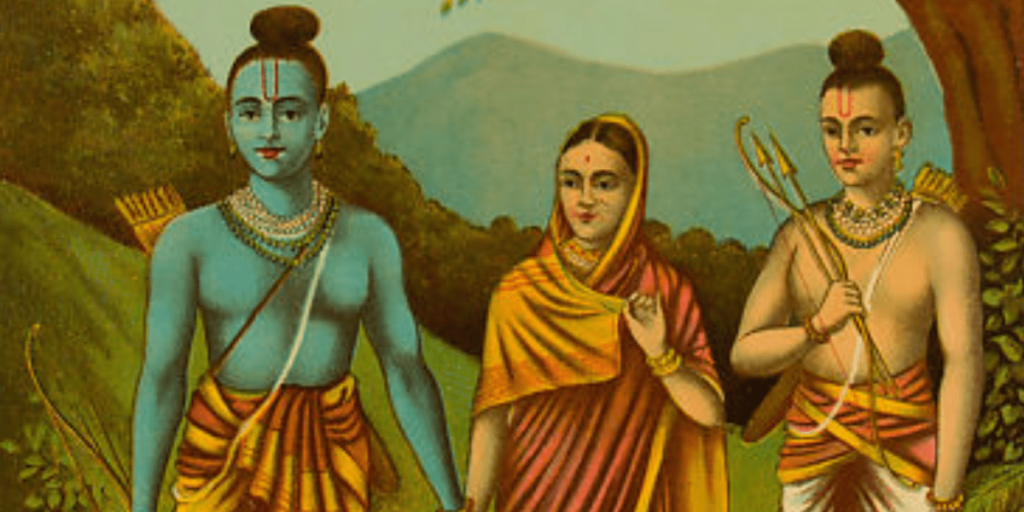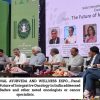Goa is abuzz with excitement as vintage bike and car owners, users, collectors and fans are decking […]

LIKE IT OR NOT, RAM DID EAT MEAT IN THE ‘RAMAYAN’!By Shuddhabrata Sengupta
In the News, Jan 27- Feb 02 2024 January 26, 2024The needless controversy surrounding the Tamil film Annapoorani, which was removed by Netflix, could have been avoided had the ‘upper’ caste people outraged over a dialogue actually read the very text they were seeking to defend.
By Shuddhabrata Sengupta
Another needless controversy over culture and food, provoked, as usual, by Hindutva hot-heads has broken out. This time it’s over the recent Tamil film Annapoorani, starring the actors Nayanthara, Jai and Sathyaraj, directed by Nilesh Krishnaa.
The film’s story is interesting.
A Brahmin girl (Annapoorani, played by Nayanthara) dreams of being a chef. She enrols secretly (so as to avoid the disapproval of her strict vegetarian father, also a temple cook) in a hotel management course to learn how to cook gourmet food. There, she faces the dilemma of having to cook meat dishes. Her friend, a Muslim man (Farhan, played by Jai), convinces her that there is nothing necessarily wrong in cooking meat by citing a verse from Valmiki’s Ramayan, in Sanskrit, which features Ram and Lakshman hunting animals and cooking meat to assuage their hunger.
This exchange has Hindu zealots up in arms. Because some delicate ‘upper’ caste Hindu vegetarian sensibilities have been injured by the mere idea that Rama could be spoken of as eating meat, and that too at the time when the ‘pranpratishtha’ (life establishment) ritual around the idol of Ram in the new temple at Ayodhya is about to take place. Matters are further complicated by the fact that this occurs in the context of the film depicting a friendship between a Hindu woman and a Muslim man.
So, not just the question of culinary blasphemy, but also the civilisational catastrophe of ‘love jihad’ is invoked. Police complaints against the filmmakers have been filed in Uttar Pradesh and Maharashtra. And now Netflix, the OTT platform where the film was being screened, has decided to remove the film. Zee Studios, the producers of the film, have offered an ‘apology’, needlessly, for having ‘hurt Hindu sentiments’
The question is we need to ask is: Can Ram, Lakshman and Sita eat meat? Can we even think such a thought?
Apparently Valmiki didn’t have a problem with entertaining it.
The scene in the film (I have seen it) which has made the Hindutva hot-heads so hot and bothered features a conversation on a staircase between the Hindu female protagonist and her Muslim friend. He recites a passage from the Valmiki Ramayan in Sanskrit to address her crisis about cooking meat. That verse is :
I find nothing per-se exceptional in a Muslim character citing a passage in Sanskrit from the Valmiki Ramayan. The best and most accessible translation from the Valmiki Ramayana into English has been done in my opinion by a Sanskrit scholar, Arshia Sattar, who, incidentally, happens to be a Muslim.
Anyone even remotely familiar with the cultural histories of Kerala, Bengal or Rajasthan will know of the several versions of the Ramayana narrative that are an intrinsic part of the poetic and performative traditions cultivated within Muslim communities in these parts. One of the most successful modern retellings, in any Indian language, of a fragment of the Ramayan narrative, is Michael Madhusudan Dutt’s Bengali epic poem, Meghnadbadh kabya. Michael Madhusudan Dutt was Christian. As a Bengali, this work is formative for me. It typifies what the Bengali language is capable of.
Although I too do not identify myself as a believer, I do read the Valmiki Ramayan, as a work of epic poetry. And I read it in Sanskrit.
The passage in question is from the Ayodhya Kanda, chapter 52, verse 102. No, it is not from the so-called ‘interpolated’ sections of the Uttara-Kanda, as is being tom-tommed by some ignoramuses.
The passage describes a moment, early in Ram’s exile, when, having just left Ayodhya and crossed the river Sarayu, Ram, Lakshman and Sita, arrive in the territory of Vatsa, and tired, and hungry, decide to eat and spend the night under a tree.
Let’s look carefully at the passage. I offer a rough translation here:
“Famished (bubhukshitau) they (Ram and Lakshman) there, then, (tau yatra) killed/hunted (hatvā) four species of large animals (chaturo mahāmrigān): wild boar (varaha ), white-footed antelope (mrishyam), spotted deer (prishatam) and the great stag with black stripes (maharurum); ate (adaya) the meat ( medhyam) quickly (tvaritam) and rested underneath a tree (vasaya…yayaturvanaspatim) in the evening time (ālē).”
Anyone with any doubts about these words and their meanings can consult any standard Sanskrit lexicon.
It’s fun to look for meat eating in the Valmiki Ramayan – it’s literally all over the text – but here’s another citation that is handy.
In the 34th and 35th verses of the 56th section (which describes Ram, Lakshman’s and Sita’s arrival at Chitrakuta during the early period of their forest exile) of the second book (‘Ayodhya Kanda’) of the Valmiki Ramayan there is another, similar reference to meat eating.
I’m offering the Sanskrit original, a Roman phonetic transliteration, followed by a Hindi and a rough English translation by me. The original text of this specific passage, and several translations, in different languages, are not difficult to find online. Those really interested might want to consult the text of the critical, annotated, edition of the Valmiki Ramayan (in seven volumes) first published in 1962 by the Oriental Institute of the MS University, Baroda.
So here it is.
vanyairmālyai phalairmūlai pakvairmāsairyathāvidhi adbhirjapaiśca vedoktairdarbhaiśca sasamitkuśaitau tarpayitvā bhūtāni rāghavau saha sītayātadā viviśatu śśālā suśubhā śubhalakaau ‘Rama Lakshmana and Sita, satisfied the forest sprites with crowns of auspicious flowers found in the forest, with offerings of fruits, edible roots, and meat, cooked well, as per the proper method, with water, while uttering prayers from the Vedas, with fuel for fire and tufts of sacred Kusa grass, and then, having done all this, they entered the hut made of auspicious leaves.’
There really isn’t any getting around the fact that the compound word – ‘pakvairmāsairyathāvidhi’ – means one, and only one thing – ‘meat, well cooked, as per the proper method’.
I had in fact referred to this very passage in a Facebook post written and uploaded by me on April 10, 2022, when ABVP thugs had attacked students in JNU for cooking and eating meat on Ram Navami, once again, because they think that nothing to do with Ram must be touched by the faintest hint of anything carnivorous. The students who were cooking and eating meat were not observing Ram Navami, their actions in no way prevented those who wanted to observe Ram Navami as a ‘vegetarian’ occasion from doing so.
Hindutva is boring, soulless, monotonous and repetitive. The same problems are regurgitated endlessly. And it has bad taste in matters of love and nourishment. I have no issues with people being vegetarian or vegan for whatever reason. But to force a culture of vegetarianism on people who prefer eating meat is an act of arrogance and cultural violence. When it is done on the basis of fake scriptural authority it gets laughable.
Get, as they say, a life.
This article is based on a Facebook post by Shuddhabrata Sengupta.
Courtesy: The Wire















